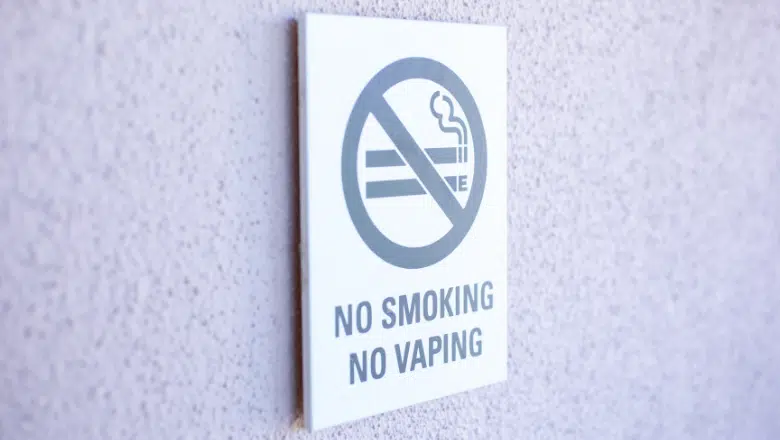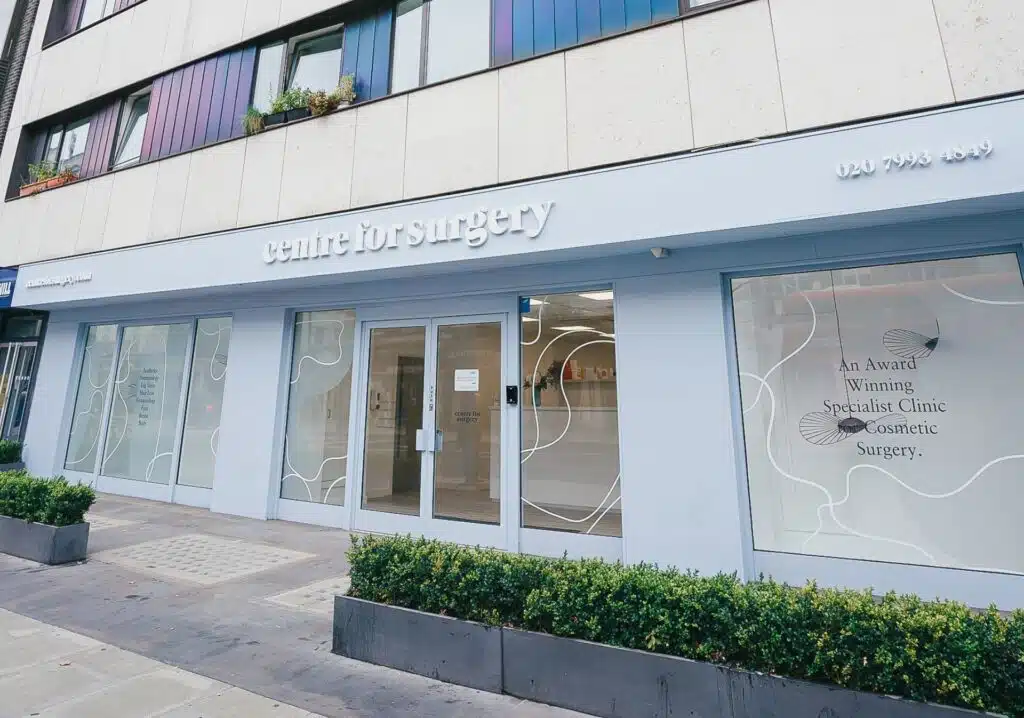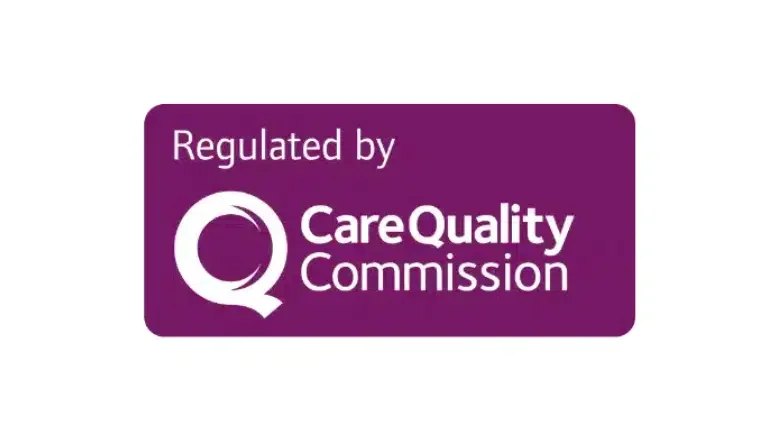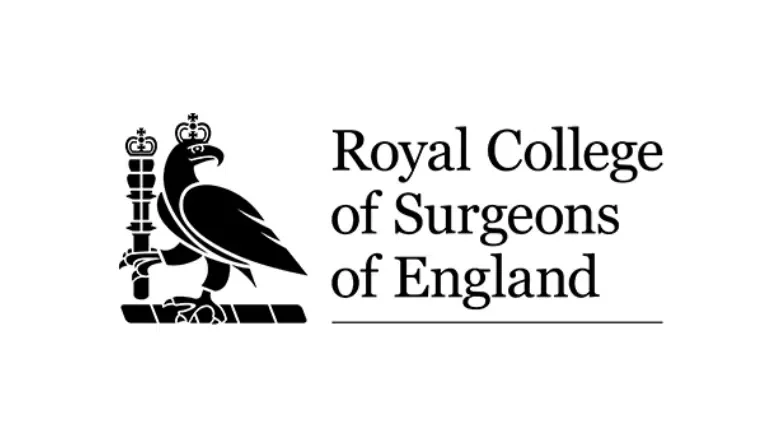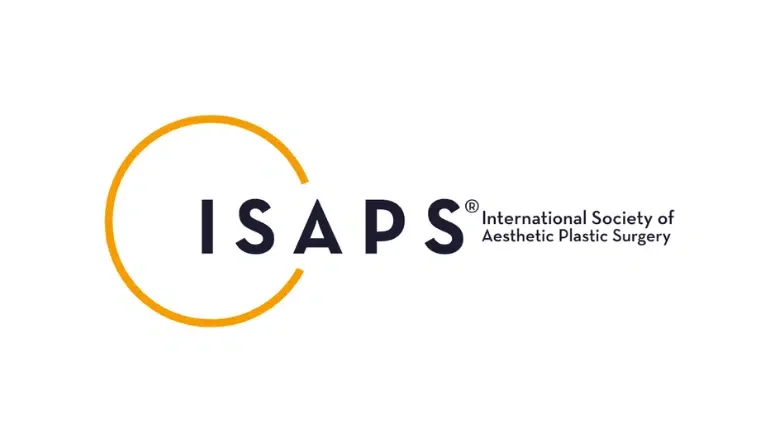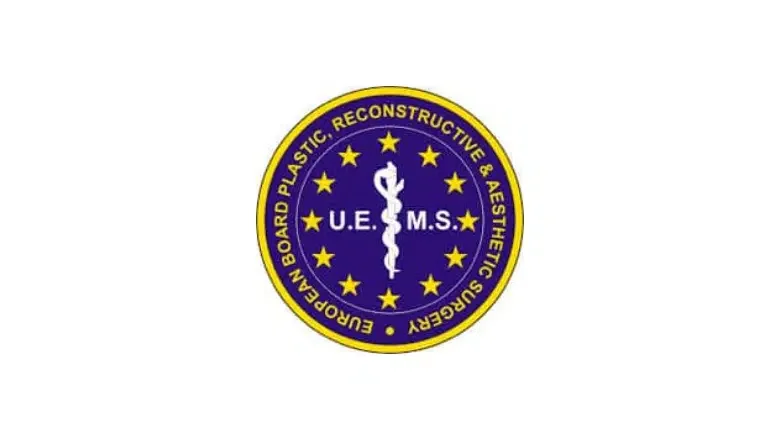Adverse Impacts of Vaping Before and After Cosmetic Surgery
In recent times, vaping has emerged as a popular alternative to traditional cigarette smoking in the UK. Many individuals perceive it as a safer choice. However, its effects on general health and the success of medical procedures, including plastic and cosmetic surgeries, continue to raise concerns. In this blog post, we aim to explore the potential impacts of vaping on the results of cosmetic surgeries. By comprehending the risks and making knowledgeable decisions, you can ensure the best possible outcome for your cosmetic procedure.
Centre for Surgery in London boasts a team of skilled and seasoned plastic surgeons. We are dedicated to assisting patients in achieving their desired outcomes following cosmetic surgery.
RELATED: Smokers & Cosmetic Surgery – The Impact of Smoking
What Is Vaping?
Vaping refers to the act of inhaling and exhaling the aerosol, often referred to as vapour, produced by an e-cigarette or similar device. E-cigarettes are electronic devices that heat a liquid (usually containing nicotine, but not always) and convert it into an aerosol that can be inhaled. This liquid, known as e-liquid or vape juice, can come in a variety of flavours and nicotine strengths.
The term ‘vaping’ comes from the vapour that these devices produce, which is notably different from the smoke produced by traditional cigarettes. Vapour doesn’t involve the burning of tobacco or the production of tar, two of the most harmful aspects of traditional smoking. However, it’s essential to understand that while vaping is often marketed as a safer alternative to smoking, it does carry its own set of risks and potential health effects.
E-cigarettes were initially designed as a less harmful alternative to traditional cigarettes, especially for long-term smokers trying to quit. However, they have since gained popularity among a broader demographic, including young people and those who have never smoked traditional cigarettes.
The Impact of Vaping on Cosmetic Surgery Results
While it’s widely known that smoking before surgery carries substantial risks, it’s equally crucial to understand how vaping can influence the results of plastic surgery. Despite containing fewer harmful substances compared to traditional cigarettes, e-cigarettes still deliver nicotine to the user’s system. Nicotine is notorious for constricting blood vessels, which can result in reduced blood flow to the area where surgery has been performed and hence negatively affect wound healing.
Furthermore, several pieces of research suggest that vaping might have similar impacts on wound healing and the success rate of surgery as traditional cigarette smoking does. These findings suggest that combining vaping and plastic surgery might not be a safe option. Anyone contemplating cosmetic procedures should be conscious of the potential risks linked to the use of e-cigarettes.
RELATED: Risks and Complications of Cosmetic Surgery
While vaping is often marketed as a less harmful alternative to smoking, nicotine’s presence in most e-liquids can still pose considerable risks for plastic surgery patients. In the context of surgery, the key concern is how nicotine reduces blood flow, potentially leading to complications such as wound dehiscence, infection, and even tissue necrosis.
Patients preparing for plastic surgery are, therefore, advised to quit vaping – just as they’re advised to quit smoking – for several weeks before their procedure and throughout the recovery process. This helps to enhance the body’s natural healing ability, lower the risk of complications, and optimise the overall results of the surgery.
Smoking and Plastic Surgery Outcomes
Smoking can throw a wrench in the works when it comes to plastic surgery, affecting everything from how well you heal to how smooth the whole process goes. Here’s a closer look at why lighting up can lead to trouble:
First off, smoking messes with how well your wounds heal. Cigarettes are packed with nicotine, which has the effect of making your blood vessels shrink. This means less blood—and the oxygen and nutrients it carries—gets to where your body is trying to heal itself. For anyone who’s had surgery, this is bad news. It means slower healing, more noticeable scars, and a higher chance of the wound not closing up properly or even getting infected.
Speaking of infections, smokers have a tougher time fighting them off. Smoking dials down your body’s defence system, so when you’re trying to recover from surgery, you’re more vulnerable to nasty bugs that can mess up your recovery and the results of your surgery.
Then there’s the issue of anaesthesia, the stuff that keeps you from feeling pain during surgery. Smokers can run into more problems here, like complications with their lungs or heart, not to mention feeling more sick and queasy after surgery.
Lastly, there’s a risk of tissue necrosis for smokers. That’s a fancy way of saying that some tissues might not survive because they’re not getting enough blood, thanks to nicotine. This can ruin the look you were going for with surgery and might even mean you need more operations to fix it.
Understanding How Nicotine Affects Wound Healing and Recovery
In the context of discussing the potential dangers of vaping and undergoing plastic surgery, it’s essential to delve into the role of nicotine on wound healing and recovery. Nicotine, a primary component of both traditional cigarettes and e-cigarettes, has several effects on the body that can significantly hinder the healing process:
- Vasoconstriction: One of the primary effects of nicotine is vasoconstriction, which is the narrowing of blood vessels. When blood vessels constrict, the blood flow to the site where surgery was performed decreases. This reduction deprives the tissues in that area of the oxygen and essential nutrients they require to heal effectively. A lack of sufficient blood flow can slow down the healing process, increase the risk of complications, and potentially lead to a less desirable final result from the surgical procedure.
- Diminished Immune Function: Several studies have indicated that nicotine can weaken the immune system. The immune system is our body’s defence mechanism against diseases and infections, and it plays a vital role in wound healing. When the immune system is suppressed, it becomes more difficult for the body to fight off infections. This could potentially result in a higher risk of wound infection after surgery, which would further complicate the healing process and prolong recovery time.
- Increased Inflammation: Nicotine has also been proven to boost inflammation within the body. Inflammation is a natural part of the body’s healing response, but excessive inflammation can be detrimental to the recovery process. Too much inflammation can slow wound healing, cause additional pain and discomfort, and potentially lead to other complications.
RELATED: How to Reduce Complications From Excess Skin Removal Surgery
Other Options for Patients Undergoing Cosmetic Surgery Who Can’t or Don’t Want to Quit Vaping
If you’re preparing to undergo cosmetic surgery and find yourself unable or unwilling to stop vaping, there are various alternatives that you might want to explore:
- Nicotine Replacement Therapy (NRT): NRT products, including items like nicotine gum and patches, are designed to help reduce cravings for nicotine and alleviate withdrawal symptoms. They do this without delivering the harmful chemicals found in e-cigarettes and traditional cigarettes. It’s essential to bear in mind, though, that you must discuss using NRT with your plastic surgeon. Even though they’re designed to be a safer alternative, some NRT products may still negatively influence wound healing and the overall outcomes of your surgery.
- Non-nicotine E-cigarettes: Certain e-cigarette products don’t contain nicotine and may be a safer choice for patients who are aiming to cut down on their nicotine intake before going under the knife. However, it’s crucial to note that we don’t yet fully understand the long-term safety of these products, and more research is required to establish their impact, especially in the context of surgical procedures.
- Behavioural Strategies: There are also various behavioural techniques that can help you manage cravings and withdrawal symptoms without needing to resort to nicotine. Practices like meditation and deep breathing exercises can be very effective, as can joining support groups. All of these strategies provide different ways to cope with the mental and emotional challenges of quitting nicotine.
Preparing Yourself for Cosmetic Surgery
To ensure the highest possibility of a successful outcome from your cosmetic surgery, it’s crucial to adhere to your surgeon’s advice and make necessary preparations for your procedure. Here are some tips to help you achieve the best possible results:
- Quit Smoking and Vaping: As we’ve been discussing throughout this article, it’s extremely important to stop smoking and vaping before surgery. By doing so, you can significantly reduce the associated risks and increase your chances of achieving the best possible results. Both smoking and vaping can impede the healing process, so quitting these habits well in advance of your surgery is strongly recommended.
- Maintain a Healthy Lifestyle: Leading a healthy lifestyle can greatly impact the success of your surgery and your overall recovery. Eating a balanced diet, incorporating regular exercise into your routine, and keeping yourself hydrated can improve your overall health and wellbeing. This, in turn, can positively affect the outcome of your surgical procedure. A body that is well-nourished and fit is more likely to heal effectively post-surgery.
- Follow Your Surgeon’s Instructions: Your plastic surgeon will provide you with a detailed set of pre- and post-operative instructions. These guidelines are designed to help reduce the risk of complications and to optimise your results. These might include advice on medications to avoid, preparations to make at home for your recovery, and care for your surgical site. It’s critical to follow these instructions as closely as possible. If you have any doubts or questions, don’t hesitate to ask your surgeon for clarification.
Plastic Surgeons’ Advice Concerning Vaping and Cosmetic Surgery
The impact of vaping on the success of plastic surgery is a topic that is still being extensively researched and debated. However, the evidence we currently have suggests that vaping, much like traditional cigarette smoking, can have a negative effect on wound healing and the overall outcomes of surgery. Consequently, if you’re contemplating cosmetic surgery, it’s crucial to understand the potential risks that come with vaping, so that you can make informed decisions about your nicotine consumption.
As it stands, the general agreement among plastic surgeons is that patients should stop vaping before they undergo any kind of cosmetic procedure. The exact period that you should quit vaping for will depend on the surgeon and the specific operation, but most surgeons advise patients to refrain from vaping for a period of at least two to four weeks both before and after surgery. It’s vital that you discuss your vaping habits with your surgeon at Centre for Surgery, so that they can provide you with advice that’s tailored to your circumstances. Following their recommendations will help to minimise any risks and ensure the best possible results from your cosmetic surgery.
Commonly Asked Questions about Vaping and Cosmetic Surgery
How much time should I allow between vaping and undergoing cosmetic surgery?
The ideal time to quit vaping prior to a surgical procedure can differ, but a large majority of surgeons advise that you stop using all forms of nicotine, which includes vaping, for a minimum of 2 to 4 weeks prior to your surgery. This is because nicotine can have a harmful effect on the healing process, increase the likelihood of complications arising, and lengthen the time it takes for you to recover.
What are the potential complications if nicotine is present in my body at the time of surgery?
If nicotine is present in your body when you have surgery, it can cause your blood vessels to constrict, which can reduce the blood supply to various parts of your body. This can result in your body taking longer to heal, and can raise the risk of complications such as infection or necrosis, which is the death of body tissue. Additionally, nicotine can affect the function of your lungs, which could potentially complicate the use of anaesthesia and your recovery after surgery.
How long will nicotine stay in my bloodstream prior to surgery?
Nicotine will usually be eliminated from your body within a few days. However, cotinine, which is a byproduct of nicotine and is often tested for, can be detected in your blood for up to 1-2 weeks. This period can vary based on a number of factors, including how frequently and for how long you have smoked, your metabolism, and your general state of health.
What is the most effective way to quit vaping?
The most successful approach to quitting vaping usually involves a combination of strategies, including behavioural support, nicotine replacement therapy or other medications, and a firm personal commitment to quit. Many people find support groups, counselling, or smartphone apps designed to assist people quit smoking to be helpful. It’s a good idea to talk to your GP for a personalised plan that’s tailored to your specific needs and circumstances.
Do you conduct tests for nicotine before cosmetic surgery?
The decision to test for nicotine before plastic surgery is at the discretion of the individual surgeon. Some surgeons may insist on it due to the well-documented risks that nicotine poses to the healing process, particularly in procedures that involve a significant rearrangement of tissue, such as facelifts, tummy tucks (also known as abdominoplasties), and breast reductions. You should bring this up with your surgeon during your pre-operative consultation.
RELATED: How to get the best tummy tuck results
When will I be able to vape again after having cosmetic surgery?
Generally, it is advised to refrain from vaping and other forms of nicotine use for at least 4 weeks after having cosmetic surgery, much like the pre-operative period. The exact duration can vary depending on the specific procedure you’ve had and your personal healing process. Your surgeon will be able to provide the best advice tailored to your individual circumstances.
Why choose Centre for Surgery?
Choosing the Centre for Surgery for your cosmetic and surgical procedures is a decision based on trust, quality, and outstanding patient care. Here are some of the reasons why our centre stands out:
- Experienced Surgeons: Our team consists of highly qualified, experienced and accredited surgeons who are dedicated to patient care. Their vast knowledge in various surgical procedures ensures you are in safe hands.
- Personalised Care: We believe that every patient is unique, and so are their needs. Our approach is tailored to each patient, considering their specific needs, goals and lifestyle.
- Advanced Technology: We utilise the latest technologies and innovative techniques in all our procedures. This helps us ensure precision, minimise recovery time and enhance results.
- Comprehensive Consultation: Our thorough consultation process ensures you are fully informed and comfortable with the procedure. We take the time to discuss the procedure, expected results, possible risks and answer all your questions.
- Patient Safety: We adhere to strict safety protocols to ensure our patients’ safety at all times. Our modern, fully-equipped facility has all the necessary safety measures in place.
- Aftercare and Support: We pride ourselves on our comprehensive aftercare programme. We stay in touch with our patients throughout their recovery journey and ensure they receive all the necessary support.
- Transparent Pricing: We believe in transparent and upfront pricing. You will know exactly what your procedure will cost, with no hidden charges.
At the Centre for Surgery, we aim to exceed our patients’ expectations at every level of their journey with us, from the first consultation through to aftercare. Your safety and comfort are our top priorities.
